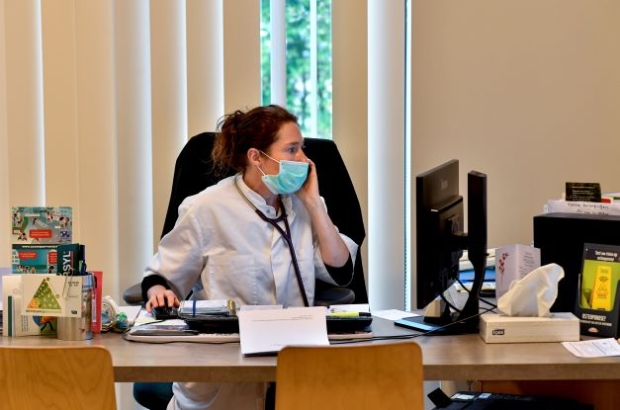- Daily & Weekly newsletters
- Buy & download The Bulletin
- Comment on our articles
Doctors’ fees, salaries, stamps … What changes are coming in 2023?
A raft of services, from GP consultations to postage, rise in cost from 1 January, reports RTBF. The New Year also signals changes to laws surrounding salaries and paternal leave among others Here’s a round-up of all the changes in 2023.
GP consultation rises to €30
The price of the consultation with general practitioners (€27.25 in 2022) and some specialists rises to €30. This represents an increase of €0.81 in addition to the 7.11% indexation, bringing the total increase to 10%.
Wage rise for salaried workers at least €600 per year
Net monthly wages, both private and public sector, will increase by at least €50. This salary rise of minimum €600 net per year is due to taxation changes, according to calculations by HR service provider SD Worx.
Increase in social tariff for electricity and gas
The social tariff for electricity and gas will increase by 7.8% and 9.7% respectively, according to data from federal energy regulator (CREG). Around 2 million people are entitled to this reduced and identical tariff from energy suppliers.
Price of a stamp rises by 15%
The price of a stamp increases by approximately 15%. A non-priority stamp rises by 16.8% to €1.39, while a priority stamp increases by 14.8% to €2.17. Compared to 2019, the price of non-priority stamps has risen by 46.3%, while the cost of priority stamps has tripled since 2017.
International postal charges are increasing in 2023 by 21%, along with the cost of national parcels. The cheapest parcel (0 to 2 kilos) increases by 14.6%, from €4.40 to €5.04. Registered post in Belgium rises by 12.2%, from €7.53 to €8.45.
Self-employed returning to work after incapacity period
Self-employed workers on long-term work incapacity will be able to resume their activity without prior authorisation from their medical advisor. This measure follows the recommendations of a working group, which advocated for greater flexibility for self-employed people wanting to return to work after a period of incapacity.
Water price hike in Wallonia
The price of water, which has not changed since 2014, increases in Wallonia from €2.62 to €2.80 per cubic meter. For an average consumer, this will result in an extra €16 per year. The increase concerns the 190 municipalities served by the Walloon water company SWDE ( out of 262 in the region). The Walloon government gave the green light to the price hike request by SWDE to cover its higher costs for capturing, storing and distributing water to customers.
Easier to obtain artisan status
The procedure for accessing the status of certified craftsman is to be modernised and simplified. Companies without a legal status will now be able to submit applications for recognition as craftsmen, including catering trades. It also applies to businesses that only run partial artisan activities. This will help self-employed people whose craftsmanship is only one of a number of activities. The procedure will be digitised for greater accessibility, although paper applications remain in place.
Reduction of tax benefit for installation of electric charging stations
The tax advantage for the installation of electric charging stations decreases for both individuals and businesses. This scheme was introduced by the federal government in September 2021 to help accelerate the growth of electric car charging infrastructure. The tax advantage for individuals, whether property owners or tenants, drops from 45% to 30% on 1 January 2023, then to 15% on 1 January 2024. Federal finance minister Vincent Van Peteghem (CD&V) wants to encourage people to invest sooner rather than later.
Fathers and ’co-parents’ get 20 days of childbirth leave
For all new births, leave for fathers and co-parents increases to 20 days (or 40 half-days). This follows an increase from 10 to 15 days in 2021. Each worker, whether full-time or part-time, is entitled to 20 days of absence within four months from delivery date. During the first three days of childbirth leave, the worker retains full remuneration paid by the employer. For the following days, he receives an allowance from his health insurance fund, which corresponds to 82% of the lost gross salary.
Smoking banned from railway platforms
The entire Belgian rail sector becomes non-smoking from 1 January, SNCB announced in a press release. It will be forbidden to smoke or vape in the entire station, including in outdoor areas. The new measure concerns all 550 stations in Belgium.
All coffee capsules recyclable in blue bags
All coffee capsules, along with other drinks, whether aluminium or plastic, can be disposed in blue PMC bags for recycling. A total of five sorting centres will be set up specifically to receive waste, says Fost Plus, the organisation responsible for recycling household waste in Belgium. It hopes to recover 4,500 tonnes of materials, 3,000 tonnes of aluminium and 1,500 tonnes of plastic, mainly mixed plastic and polypropylene.
New price increase for Proximus customers
Telecoms company Proximus applies a new price increase averaging 4-6% on most services. Its previous price increase dates from 1 May, when popular Flex packs underwent a monthly increase of €3 to €4. The January increase will be similar (€3 to €4.50 per month) and concern most combined offers. Fixed internet costs will also become more expensive: the cost of the Maxi subscription rises to €54.99 monthly and €59.99 for fibre optic. For mobile packages, prices rise for certain older products, while the use of online data and calls will be more expensive for prepaid customers. The use of a fixed telephone line undergoes a monthly increase of €1.50 to €26.13.
Finally, low-cost brand Scarlet follows a similar price-hike trend. Its formula including unlimited internet goes from €32 to €34 per month, while the trio pack (internet, television and fixed line) increases from €2 to €42 per month.
Photo: Belga/Dirk Waem














